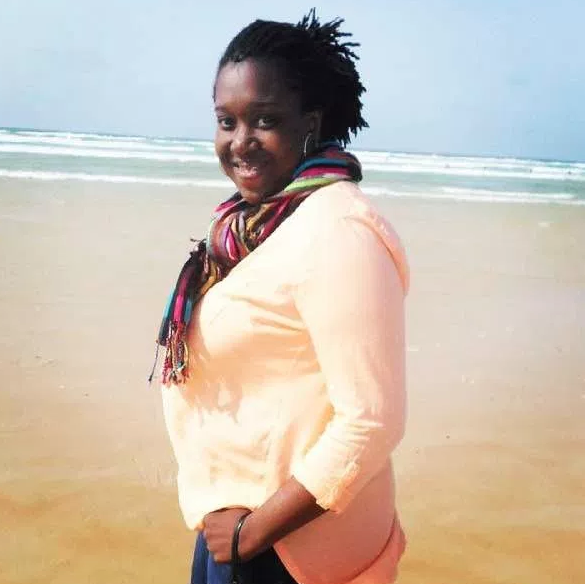Black Abroad In Mali: Here's One Jamaican American's Experience
Tamara Thompson originally moved to Bamako, Mali, in 2006 as a Peace Corps volunteer.
Disclosure: This post contains some affiliate links, which means we get commissions for purchases made through links in this post.
[Originally interviewed in 2014 with a 2018 update at the end]
An American by way of Spanish Town, Jamaica, Tamara originally moved to Mali as a Peace Corps volunteer. However, she fell in love with Malian life and ended up staying long after her Peace Corps service was done. Tamara reflects on living and working in Bamako and why a visit to Africa is a must for every African descendant.
about your move to mali
Tell us a little about yourself!
I'm Tamara. 32. I was originally born in Spanish Town, Jamaica, but left when I was two. I grew up in Maryland.
Where in Mali do you live?
I live in Bamako, Mali.
When did you first visit the African continent? What were your first impressions?
I joined Peace Corps Mali in 2006. It was my first time on the continent. I was always in awe of the beauty of the country. My first night in Mali I took an outdoor shower and I remember looking up at the stars and thinking that I had never seen so many stars in the sky. That’s when I fell in love with the country. Since then I have been to Burkina Faso, Ghana, and Senegal.
A minibus driving through Bamako City Center, Mali.
Credit: Jelle Jansen, Bamako Boulangerie, CC BY 2.0
How long have you lived in Mali since originally arriving with the Peace Corps? How long do you plan to stay there?
This is currently my third time in Mali. I did three years in Peace Corps (2006 – 2009). Three months with another job (2013) and I’m currently four months into my current job (2014). I plan to stay here for as long as I can and find another opportunity that will allow me to stay.
Professional Life
How did you get your current job? Tell us a little about your professional work there.
I think my previous experience in Peace Corps gave me the opportunity to come back. My first job after Peace Corps wanted someone with experience in the country. From there, I gained my current position through networking.
At the moment, I assist research scientists and ecologists in both the U.S. and at a Malian University. I help coordinate a USAID funded research project on climate change and pastoralist systems.
Does Mali have many entrepreneurial opportunities? How easy it is for a foreigner to start up a business?
Honestly, I don’t know the answer to these questions, but I want to find out. I would love to invest in the country and start a business here. From the time I’ve spent here, I’ve seen an emerging middle class. Within the last few years, I’ve seen more and more luxury cars, larger grocery stores, and nicer restaurants.
What's your best advice for potential expats?
Knowing the language is a major benefit. Not many people speak English, so knowing French is a must! I am also lucky because Peace Corps taught me the local language, Bambara, which I use to speak with certain people.
Monument to the Heroes of the Black Army, Bamako, Mali
Credit: Wikimedia Commons
Everyday Life in Mali
What's life like in Mali for you?
Life is pretty normal. I go to work. I go out to dinner with my friends. I go on dates with my boyfriend. There are bars, clubs, day spas, bowling alleys, pool halls, etc. Life isn’t too incredibly different.
How have you been welcomed as an African American? Or as an American in general?
People here seem to LOVE Americans. And they actually seem to love me even more because I am Black American.
What do you love the most about living in Mali? Favorite memory so far?
I think some of my fondest memories have to be during Peace Corps. I lived with a host family that I am still in contact with today. I love them very much.
Easiest things to adjust to?
People’s friendliness and hospitality.
Most difficult things to adjust to?
The fact that everything seems like controlled chaos.
What's your social life like there?
I have close friends who I hang out with and have dinner with regularly. Unfortunately, many of the expats in Mali are transient, so they are only here for a couple months, or a couple years at a time. My best friends here will be leaving at some point. I have an African (but not Malian) boyfriend that I go out with often as well. So I have met many locals through him.
Can you share a few details on the cost of living in your community?
My job takes care of my rent, but my three-bedroom, two full bathroom apartment is only around $200 a month. How expensive food is depends on what you buy. Imported foods are expensive (tuna for $4 a can!!) but staples are comparable or cheaper to the US. Eating out isn’t that expensive either. You can enjoy a good meal at a nice restaurant for less than the US.
Personal Reflections
Did you always dream of living abroad?
Yes, but I didn’t ever think about doing so permanently.
Best advice for someone who wants to move to the African continent?
Visit where you are interested and then look for jobs. Try to spend an extended amount of time somewhere volunteering (Peace Corps) or doing a short job. First impressions may not be great, but Africa grows on you.
Do you think enough African Americans visit the continent? What would you say to encourage more of them to visit?
No! And I would really encourage more to visit. It’s an amazing experience to see where your ancestors came from. Even being of Jamaican descent, sometimes I wonder if I am distantly related to the people around me. Also stepping foot on the continent and knowing that it’s not a place full of pain and suffering and that there are vibrant happy loving people is wonderful! Being able to claim that as a part of your own experience, changes you. Making that trip is one of the most important things someone of African descent can do.
How long do you plan to stay in Mali?
When I got this job, I thought about staying for two to three years. I now think that I would stay longer if possible.
What has living in Mali taught you? Or how has it changed you?
Patience, Patience, Patience. Things don’t usually happen when you want them to.
Anything else you'd like to add?
Everyone should know where they come from. It both grounds you and sets you free.
Is there somewhere we can follow your experience?
I don’t have a blog. But I do post a lot of pictures on Instagram (@tdmthompson)
You're back in the U.S. now! What made you return and how has the re-adjustment been?
My job in Mali ended and I wasn't able to find another there in time. Also at the time, I felt like I wanted to come home and settle in the US. Life back home has actually been a roller coaster because I feel like I belong in two places. And very few people can totally understand that.
Do you miss Mali? Would you move back?
I miss Mali a bit but I miss Africa as a whole more. I don't feel tied to Mali now especially with the civil war going on. I want to take time to explore other countries and places. To put it better, I miss African hospitality and the warmth of the people. I miss Black spaces. I miss feeling like I look like everyone around me.
I've had the opportunity to visit Dakar recently. I love Dakar and hope to move there. But I'm keeping my options open to Accra, Monrovia, or Freetown. My ultimate goal would be to live between the US and West Africa.
Tell us a little bit about your nonprofit Roots and Wings!
After some time at home, I realized my passion was helping to bridge the gap between Africans and African Americans. I had the idea of starting a nonprofit that promotes African travel and African history education by exposing minority youth to African themed activities. We're more similar than different and we could help each other especially in a world that doesn't value Blackness. I came up with the idea of Roots and Wings; a group of minority students learning African history throughout the year with their experiences culminating in a trip to the continent.
It's still very much a new idea and evolving. I'm hoping to get it off its feet this year or so. My hope is that by showing minority youth that there is history before the slave trade and aspects of their culture to be proud of, they will have a new tool to navigate life in America and bridge the gap between all Black peoples.
Follow Tamara's Roots and Wings nonprofit on Instagram: @rootsandwingsorg





